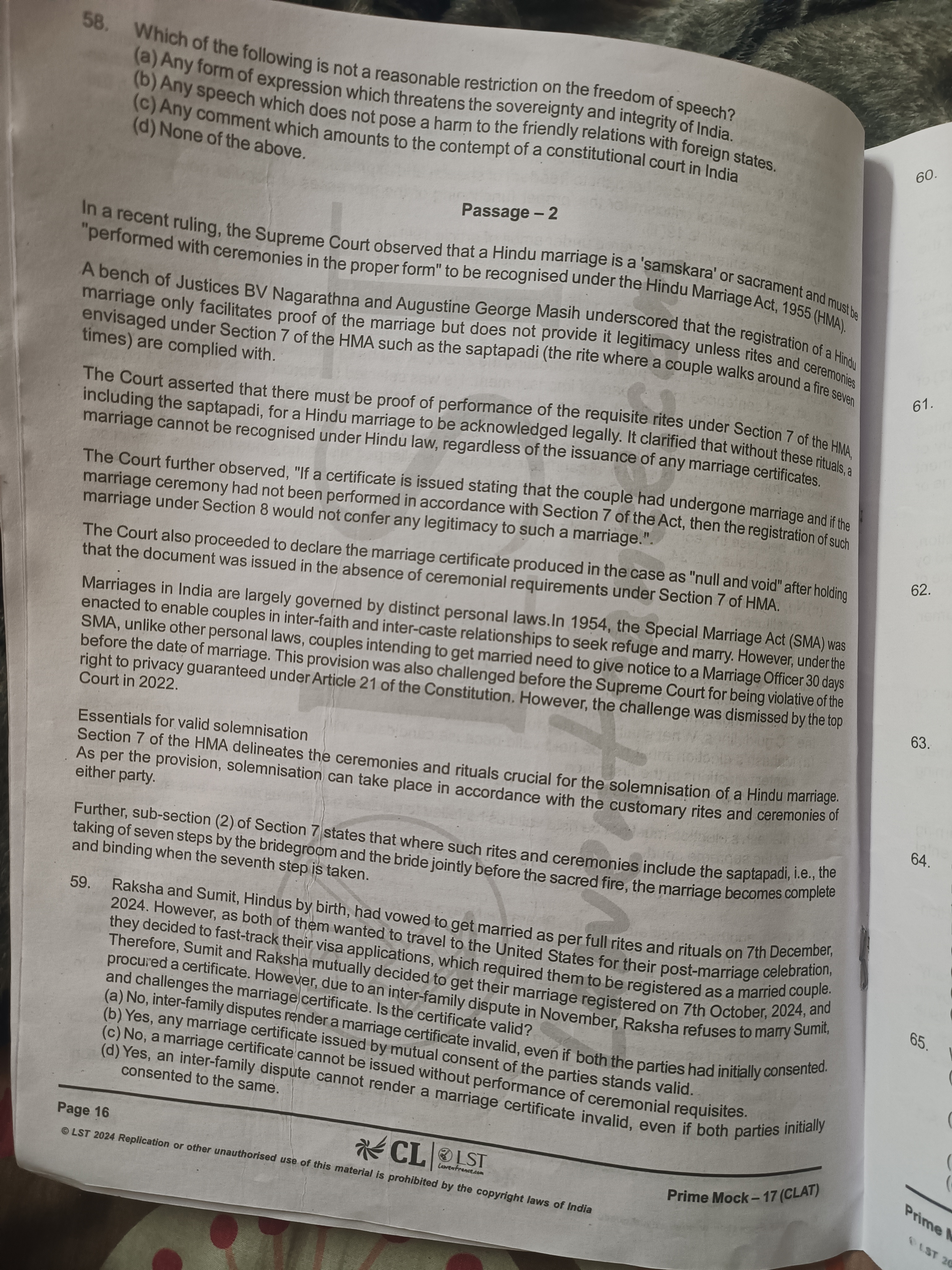Which of the following is not a reasonable restriction on the freedom of speech? (a) Any form of expression which threatens the sovereignty and integrity of India. (b) Any speech w... Which of the following is not a reasonable restriction on the freedom of speech? (a) Any form of expression which threatens the sovereignty and integrity of India. (b) Any speech which does not pose a harm to the friendly relations with foreign states. (c) Any comment which amounts to the contempt of a constitutional court in India. (d) None of the above.

Understand the Problem
The question is asking for the implication of a recent Supreme Court ruling regarding the recognition of Hindu marriages under the Hindu Marriage Act, focusing on the necessary rituals and documentation related to marriages. It addresses whether a marriage certificate can be deemed valid under certain circumstances, particularly in the context of inter-family disputes and formal marriage requirements.
Answer
Option (b) is not a reasonable restriction.
Option (b) Any speech which does not pose a harm to the friendly relations with foreign states is not a reasonable restriction because it's incorrectly worded—it should pose a harm to be restricted.
Answer for screen readers
Option (b) Any speech which does not pose a harm to the friendly relations with foreign states is not a reasonable restriction because it's incorrectly worded—it should pose a harm to be restricted.
More Information
Freedom of speech in India is subject to reasonable restrictions, including threats to sovereignty, integrity, and friendly relations with foreign states.
Tips
A common mistake is misinterpreting the requirement for restrictions to affect matters such as sovereignty or friendly relations.
Sources
- Article 19 in Constitution of India - Indian Kanoon - indiankanoon.org
- In India the right to "freedom of speech and expression" is restricted ... - toppr.com
AI-generated content may contain errors. Please verify critical information